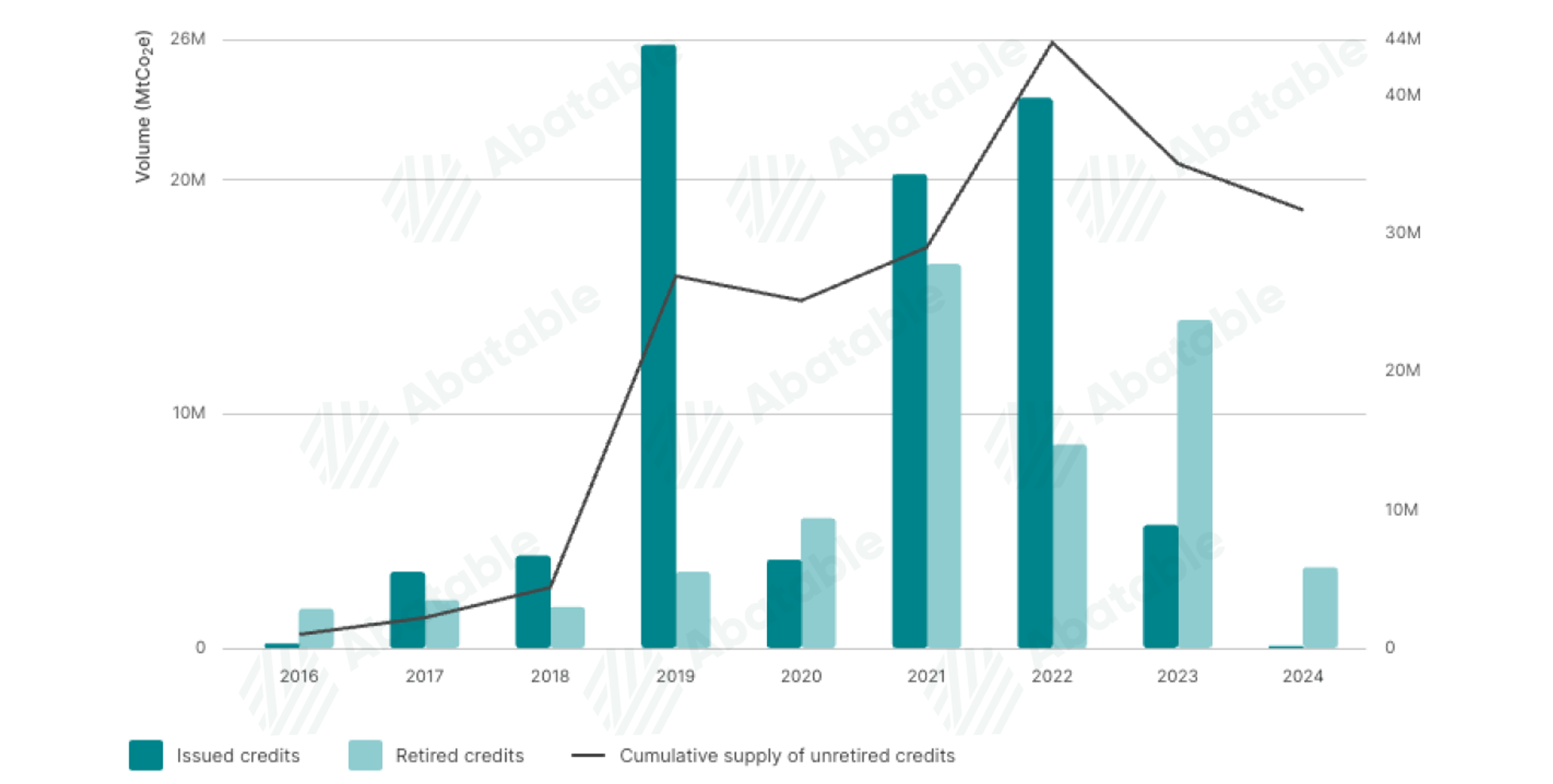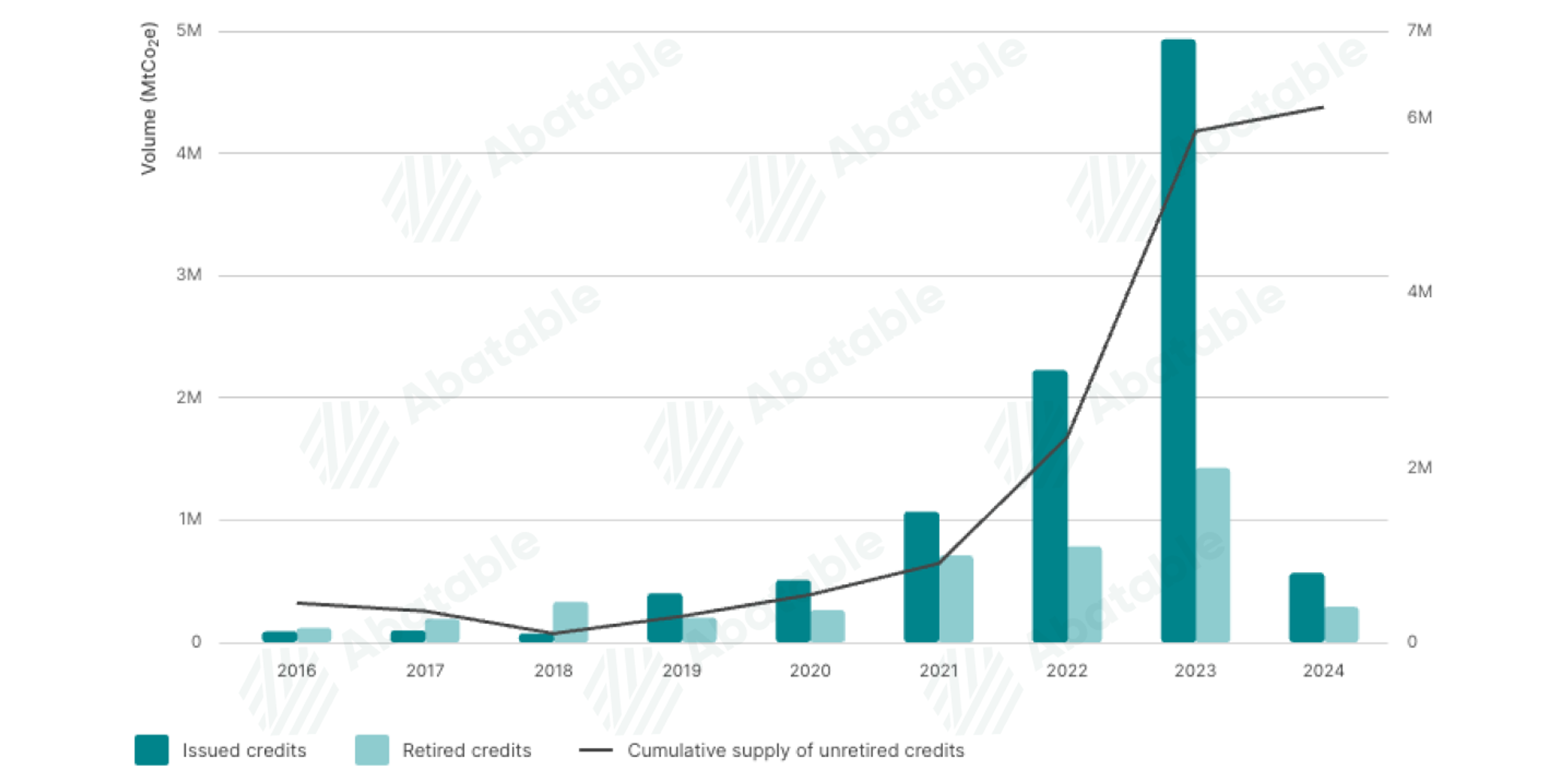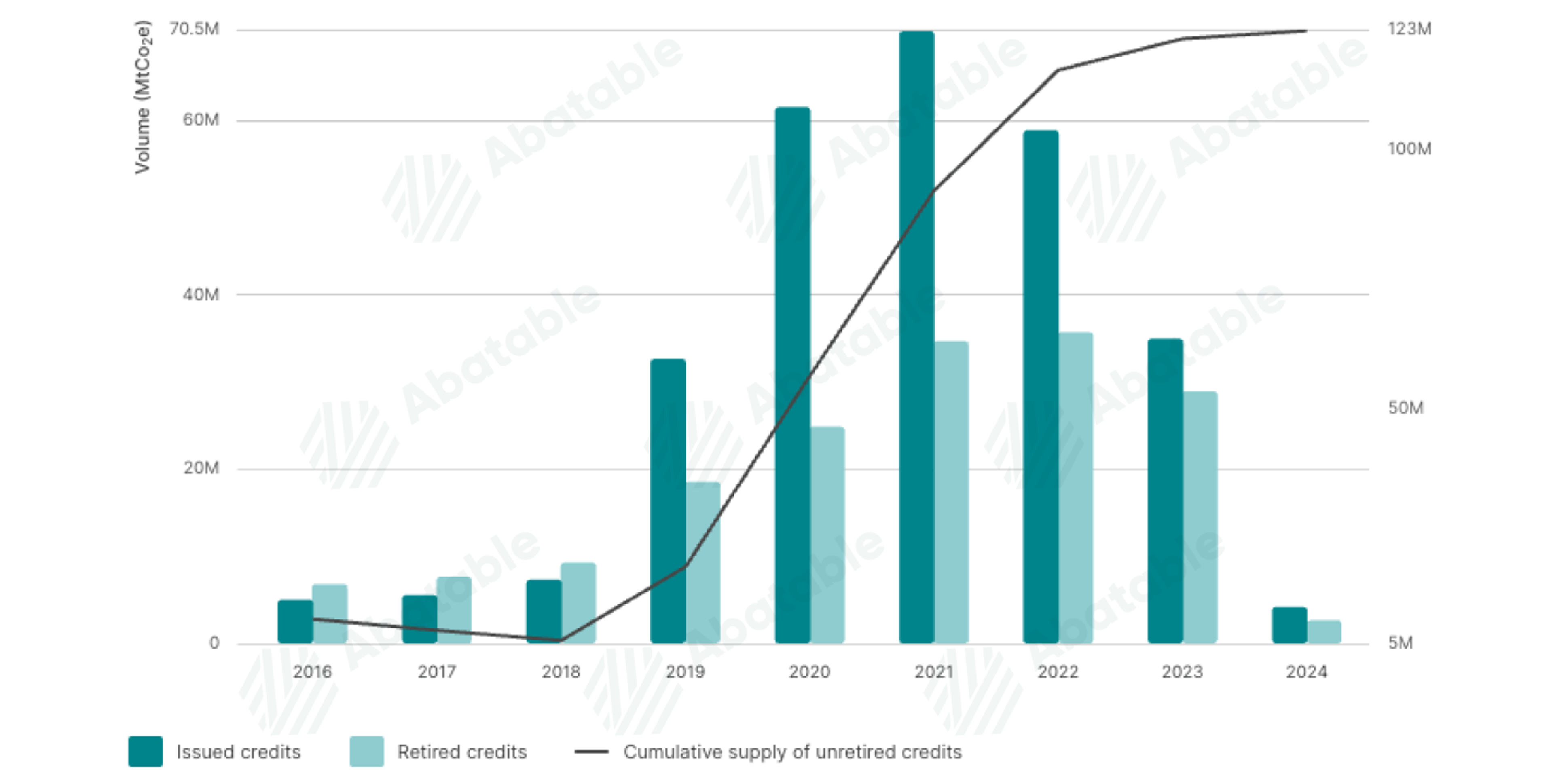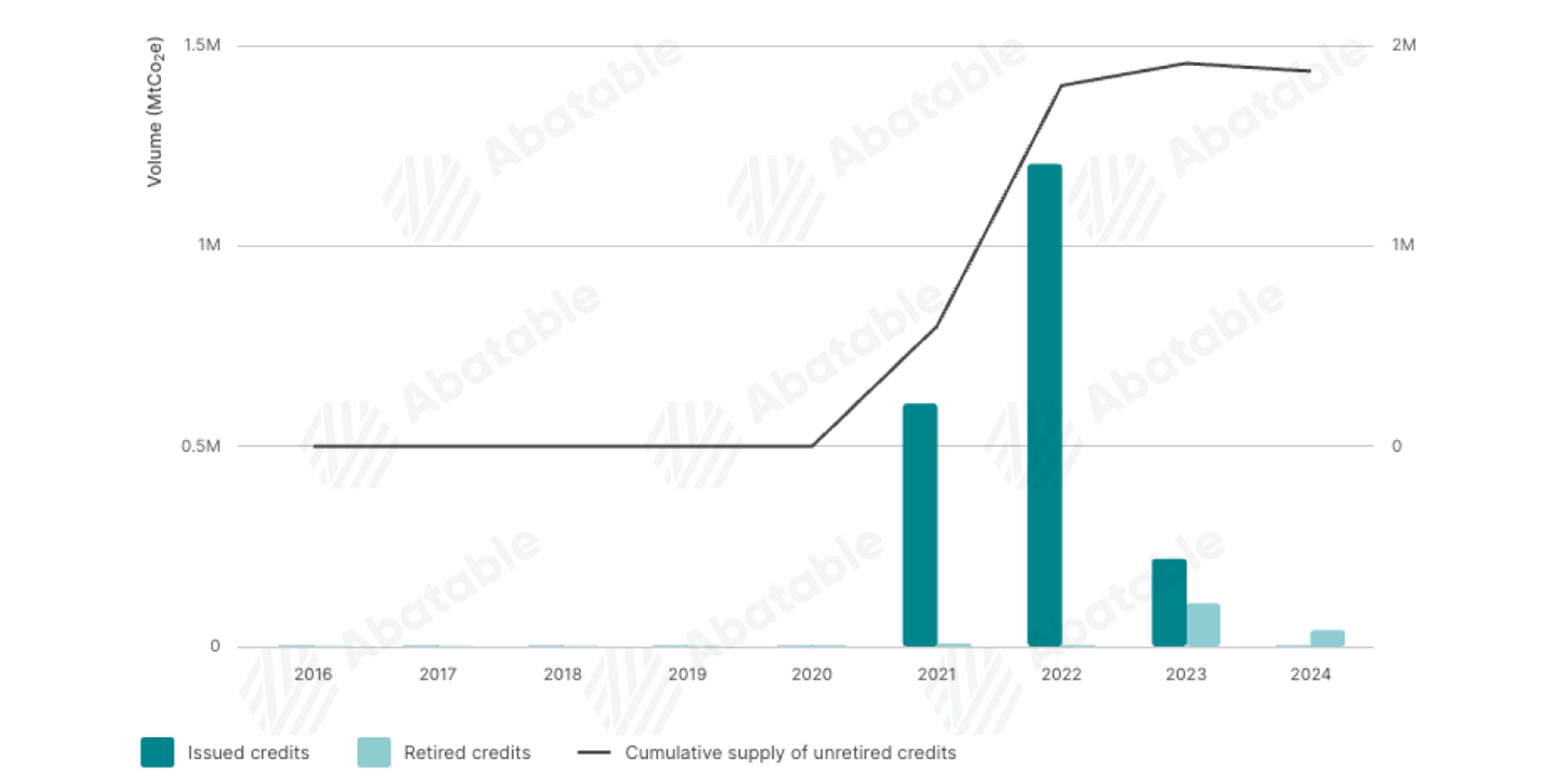On 7 January 2024, Bangladeshi citizens headed to the polls following a series of protests against the country’s then-standing government. This marked the first election in an unprecedented year that will ultimately see two billion people worldwide – nearly half of the adult population – encouraged to vote for the parties they want to govern them.
Carbon markets will not define any of these elections. They will not come close to entering party manifestos or being discussed at leadership debates. Most of those arriving at polling stations to cast their votes will never even heard of them, let alone have their decision swayed by them.
They are, however, a significant political concern. Carbon markets are a fundamental part of the response to climate change. If utilised correctly, they can reduce emissions while providing the opportunity to support social and economic development.
Carbon markets can create jobs, reduce air pollution, purify water, provide energy security and support agricultural produce. They can facilitate the flow of finance from the Global North to the Global South. They are a climate solution befitting market-based economies, and represent one of the few forms of financial mechanisms to date that puts a price on natural capital.
If a true, well-functioning global carbon market is established, this will offer symbolic evidence of a cooperative global approach to reducing emissions – desperately needed if we are to limit the rise in global temperatures.
Policy matters
Carbon markets have increasingly attracted regulatory attention as they mature, and governments – understanding their potential – have looked to establish rulebooks to improve efficiency, efficacy and trust.
The combination of this policy expansion with an unprecedented year of elections means 2024 may be one of the most important political years yet for carbon markets.
We can expect legislative processes to flow following an election as administrations get to work on implementing electoral pledges. Administrations may endorse, review, or enhance their Paris Agreement targets and then get to work on achieving them. New enacted compliance schemes and initiatives to enhance Article 6 engagement and domestic carbon infrastructure – amongst other policy initiatives – could be put in place to benefit carbon markets worldwide.
Keep up to date with Article 6 agreement news with Abatable’s carbon market country policy profiles.
There will be some headline-grabbing drama. Much global attention will be drawn to the US, where Donald Trump will likely run again for election against current President Joe Biden.
One of Trump’s significant actions as president in 2017 was to pull the US out of the Paris Agreement. President Biden returned the US to the Agreement immediately after entering office in 2020, and his Inflation Reduction Act has provided significant financial incentives to green sectors – particularly novel carbon removal technologies and processes. There have also been recent discussions about a US carbon border levy in response to the EU’s Carbon Border Adjustment Mechanism (CBAM).
The outcome of the US election will be fundamental not only to the development of its environmental ambition, but also to its level of global climate cooperation and the likelihood of the world meeting emissions reduction goals.
Meanwhile, in the EU, polls suggest that elections in the European Parliament will see a shift towards the right, away from Green and Liberal parties. This could act to create more political resistance to policies facilitating the EU’s Green New Deal.
If further populist governments are elected around Europe, as has been the trend in recent years, there will likely be an increased anti-climate stance on the EU Council. Similar to the US, upcoming elections in the EU could have far-reaching impacts on global climate efforts.
Key carbon market elections
Away from the spectacle of the US and the complexities of the EU, many elections this year will significantly influence the development of carbon markets. There are several key countries we think are worth keeping an eye on.
Indonesia
Indonesia’s popular President, Joko Widodo, is to step down this week after reaching his constitutional term limit, and the subsequent election presents a pivotal moment for Indonesia's carbon market landscape – and the country itself.
The imposition of a moratorium on carbon credit activities in Indonesia in early 2022 marked the beginning of a dedicated effort by the government to realign its carbon trading regulations with the attainment of its Paris Agreement climate pledge, or Nationally Determined Contribution (NDC). While progress has been made here, hurdles still persist, including inter-ministerial collaboration issues and ambiguity in international carbon trading governance structures.

One of the primary concerns revolves around Indonesia’s forestry sector, where the government has yet to establish clear quotas for internationally tradable credits. Additionally, uncertainties loom over Indonesia's broader engagement in international carbon trading and its stance on Article 6 agreements. Whether voluntary registries such as Verra and Gold Standard will be accepted within the country’s national framework remains uncertain.
Amid these challenges, however, there is an air of optimism surrounding the impending election, with the hope that new leadership could help unlock carbon markets and speed up the recognition of independent registries.
View Abatable’s newly launched full carbon market policy assessment for Indonesia here (subscribers only). Learn more, or request a demo of our market intelligence platform.
Mexico
In Mexico, where President Amlo will step down this year, a historic milestone is almost certain as the two main parties are fielding female candidates – one of whom is likely to become the country’s first female leader.
Mexico has positioned itself as a significant player in global climate policy under previous administrations, enacting the first general law of climate change among developing nations – second only to the UK globally. This landmark legislation mandated a comprehensive approach to climate policy, including the implementation of regulatory and market instruments.
The current Mexican administration has been scaling back on previous climate progress, however. Reforms made to the country’s General Climate Change Law in 2020 saw the elimination of its Climate Change Fund, and the dissolution of Mexico’s National Institute for Climate Change followed in 2021. Amlo strengthened the powers of the state in the country’s energy sector, which has deterred private investment and impacted renewables development.

Mexico currently lacks a framework for Article 6 or voluntary carbon market initiatives. The upcoming presidential elections, slated for July 2024, will serve as a critical juncture, determining whether Mexico reclaims its position as a leader in climate action or continues on its laggard path. The launch of the country’s emissions trading system has been put on hold due to insufficient political support, with the outcome of the upcoming election poised to dictate whether this initiative gains momentum or remains stagnant.
Current political frontrunner Claudia Sheinbaum, the incumbent party candidate, brings a wealth of climate experience to the table, having previously served as the Secretary of Environment. With her background, she could play a pivotal role in reinstating an environmental focus to Mexico's policy landscape. Still, she may also find internal blockages from members of her party who have encouraged a shift away from green policies in recent years.
View Abatable’s full carbon market policy assessment for Mexico here (subscribers only). Learn more, or request a demo of our market intelligence platform.
India
India surpassed China in 2023 to become the world's most populous country, setting the stage for Prime Minister Narendra Modi's reelection bid with the Bharatiya Janata Party this year. India is a huge supplier of carbon credits in the voluntary market, and projects benefit its economic development – particularly in rural areas.
Given its size, India is of course also a significant contributor to climate change, and the groundwork for its compliance scheme to target large emitters is steadily progressing with expectations set for implementation by 2026. It’s expected that entities will be allowed to use carbon credits to offset a portion of their obligations under the scheme, which would create added demand for domestic carbon projects.

Furthermore, India has unveiled a whitelist of projects earmarked for Article 6.2 carbon trades, signalling a proactive approach towards facilitating international carbon credit transactions. To operationalise this, we can expect the next administration to push ahead with cooperative Article 6.2 agreements.
There has been some confusion however as to if and how India may limit the export of voluntary credits to achieve its own NDC targets. For clarity on this, the next administration will need to deepen and align India’s NDC sectoral targets with carbon projects to establish what can and cannot be exported. India will also need to develop a national registry and authorisation process for trading correspondingly adjusted credits.
The country has also historically played a pivotal role as a supplier of credits to the CORSIA pilot phase market. Phase 1 of the CORISA scheme, which commenced in 2024, requires all credits to be correspondingly adjusted, adding further weight to the significance of any forthcoming authorisation process.
In addition to its carbon market endeavours, India has announced various environmental initiatives including the enigmatic ‘green crediting’ mechanism. Details regarding this scheme remain sparse, but it is distinct from the carbon market, focusing on credits derived from more general eco-friendly activities rather than carbon sequestration. The interplay between this initiative, potential compliance markets, and India's emissions trading scheme may undergo significant shaping under the next administration.
View Abatable’s newly launched full carbon market policy assessment for India here (subscribers only). Learn more, or request a demo of our market intelligence platform.
Dominican Republic
Carbon markets are at a very early stage in the Dominican Republic, marked by a noticeable lack of projects, regulatory structures, and administrative protocols. Despite this underdevelopment, a glimmer of potential is highlighted in the nation's NDC, which signals an interest in exploring opportunities under Article 6.

Additionally, the country’s government has recently unveiled its National REDD+ Strategy, indicating a growing awareness of environmental concerns. The Dominican Republic and other smaller countries might look to enhance their capacity building in the coming years and access international carbon markets as a way to gain foreign direct investment and diversify their economic development.
View Abatable’s newly launched full carbon market policy assessment for the Dominican Republic here (subscribers only). Learn more, or request a demo of our market intelligence platform.
South Africa
Energy will be a crucial factor in South Africa’s upcoming election as the country regularly experiences rolling blackouts, resulting in the state energy company EKSOM coming under fire. The African National Congress (ANC), which has governed throughout South Africa’s post-Apartheid era, is under real electoral pressure. There is anticipation it may not win a majority of votes, which could lead to a coalition government. If new parties enter government, their energy and climate policies could significantly influence future direction.
South Africa already has a carbon tax, the first in Africa, which has been operational since 2019. While extensive tax breaks mean many entities don’t currently pay the full amount, this rate is set to rise incrementally over the coming years. Many of South Africa’s domestic voluntary carbon projects currently contribute credits to the country’s compliance scheme, where a portion of obligations may be offset.

South Africa is leaning on some of the infrastructure already in place for its compliance scheme to develop its Article 6 mechanism, however we understand the country is being patient and seeing how other countries' Article 6 efforts are operationalised in practice before implementing its own.
While a coalition government may lead to increased division and gridlock in policymaking, the next administration can be expected to take Article 6 forward, which might result in new carbon market legislation and processes in South Africa in the coming years.
View Abatable’s full carbon market policy assessment for South Africa here (subscribers only). Learn more, or request a demo of our market intelligence platform.
A year of change
The upcoming wave of elections across the globe will have far-reaching policy impacts that will significantly impact societies around the world over the coming years. We of course hope to see broader proactive national climate policy initiatives alongside global cooperation on climate change.
Carbon markets will be a key piece of the climate puzzle as we attempt to limit global temperature rises and unlock global low-carbon finance flows. Compliance schemes, Article 6 mechanisms and voluntary carbon markets are all set to continue their expansion in the coming years. The administrations sworn in this year will have a huge part to play in their evolution.
Keep updated on country-specific carbon market developments with Abatable’s carbon market country policy profiles. Find out more here.